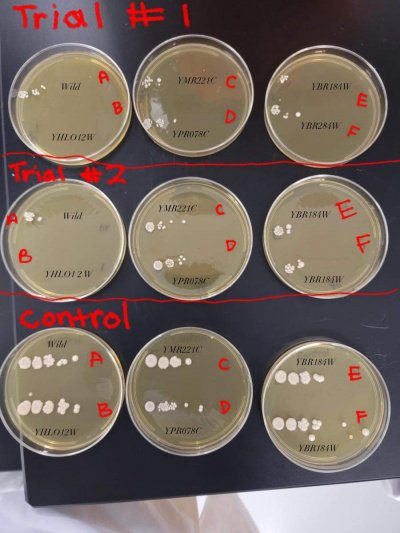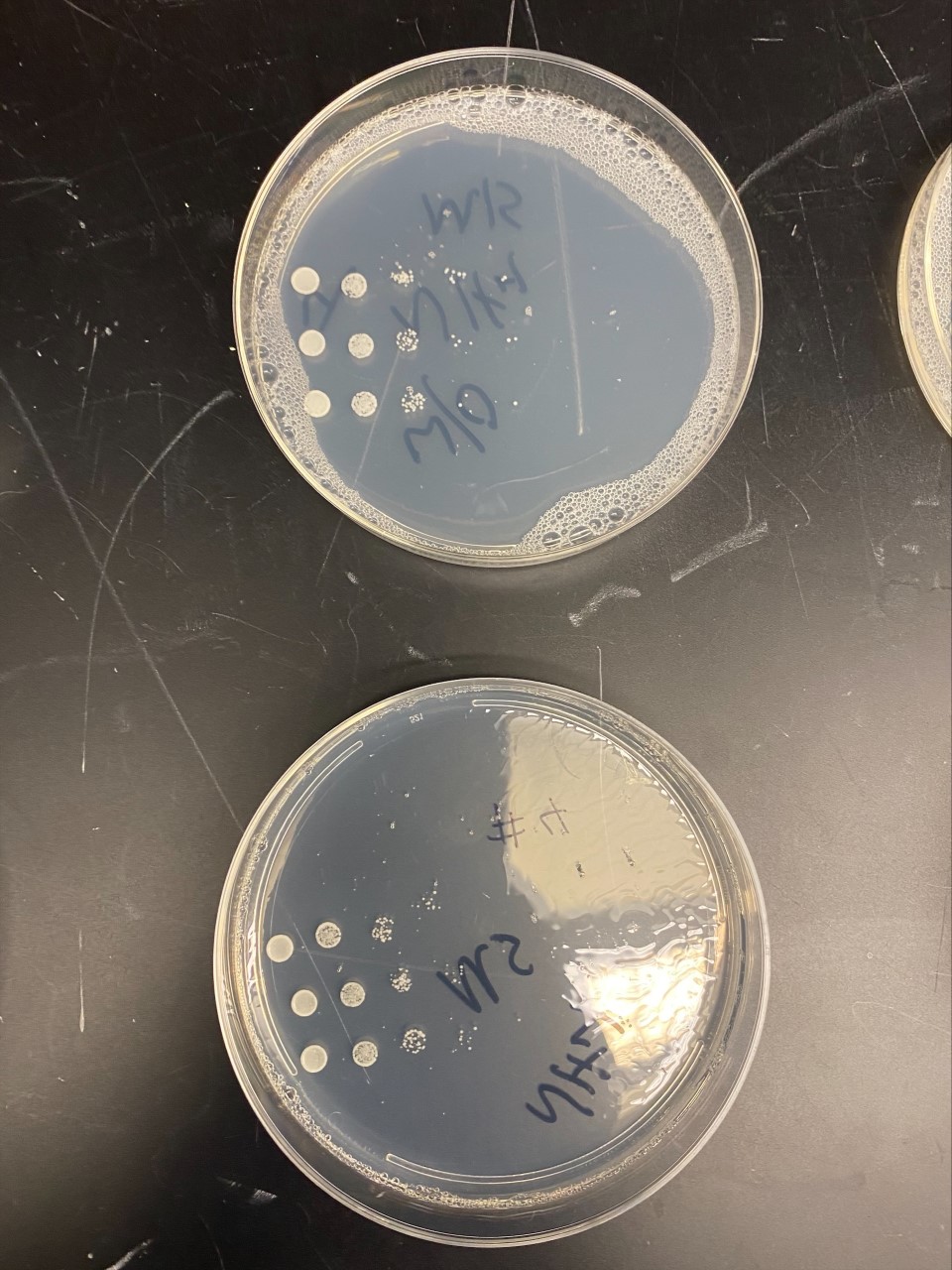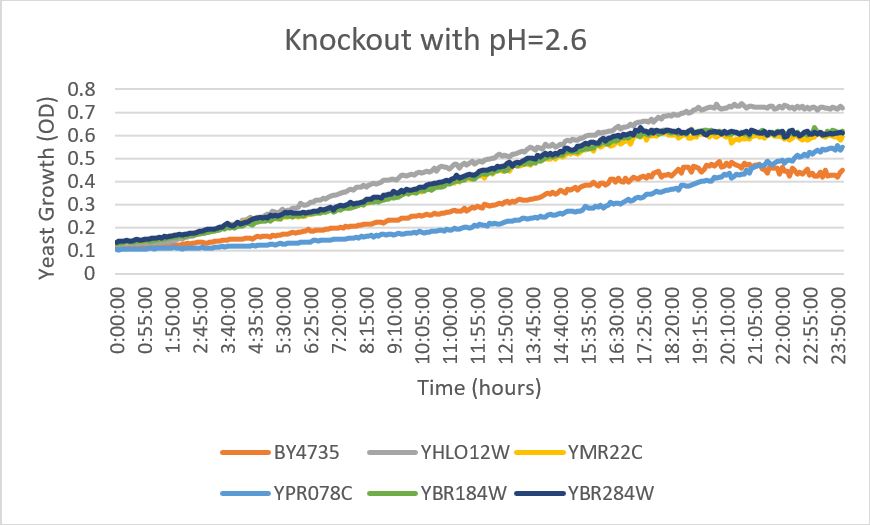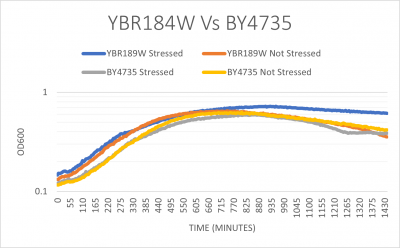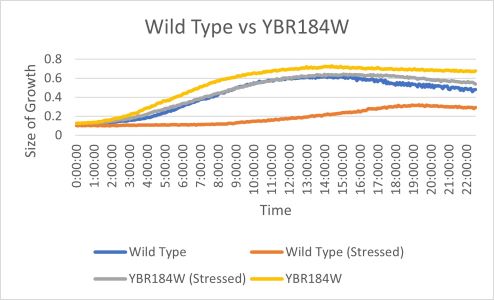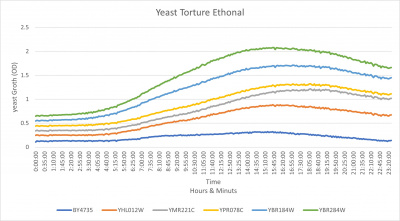YBR184W
Share your knowledge...Edit this entry! <protect>
| Systematic name | YBR184W |
| Gene name | |
| Aliases | |
| Feature type | ORF, Uncharacterized |
| Coordinates | Chr II:597363..598934 |
| Primary SGDID | S000000388 |
Description of YBR184W: Putative protein of unknown function; YBR184W is not an essential gene[1]
</protect>
Contents
Community Commentary
About Community Commentary. Please share your knowledge!
This gene is part of the UW-Stout Orphan Gene Project. Learn more here.
UW-Stout/Heat Shock FA21
YBR184W (E)
- When stressing this strain of yeast, there was a decrease in growth rate by about two to three times less. The heat shocked plates showed more stress compared to the control plates as there was less colony/cluster growth.
Nitrogen Starvation
- The YBR184W gene did not get affected by the Nitrogen Starvation stress. There was no significant change that indicated that there was a lesser growth in comparison between the media with NH₄ and without.
UW-Stout/Bud Scars FA21
Cells grown with this gene (YBR184W) knocked out had an average of 1.26 bud scars per cell while the wild type (BY-RY4735) had 0.85 bud scars per cell. Of 149 YBR184W cells counted, 187 bud scars were seen. This indicated that the YBR184W gene slows reproduction rate and thus bud scarring in yeast cells.
pH
YBR184W
- When this strain was exposed to a citric acid buffer with a pH of 2.6, there did not appear to be a significant change in the growth rate of the strain
<protect> [[1]]
UW-Stout/G418 FA21
The YBR184W yeast strain doubling time without any stress was 169 minutes which is slightly faster than the wild type with 182 minutes. When both strains were stressed by G418 they YBR184W doubling time was 178 minutes and the wild type was 178 minutes. (These times are averaged between three trials) Protocol: [2]
UW-Stout/Copper FA21
The average doubling time for YBR184W unstressed was 218 minutes, while stressed it was 317. From these observations we can conclude that while stressed with our .5 mM CuSO4 solution, the YBR184W strain grew approximately 32% slower. The unstressed version also had a higher overall size.
UW-Stout/Ethanol FA21
- The Yeast Strain of YBR184W was not affected by the 18.5 % Ethanol it still has a steady growth curve
References
See Help:References on how to add references
See Help:Categories on how to add the wiki page for this gene to a Category </protect>
